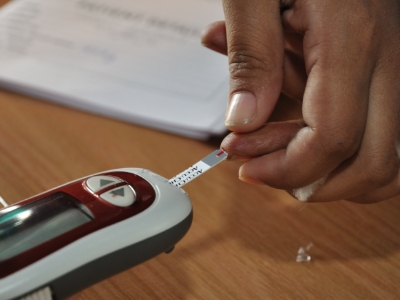Focal Seizures

What are Focal Seizures?
Focal Seizures occur in just one area of the brain. This can be simple or complex. Based on the seizure description, physicians may be able to identify in which part of the brain the seizures are originating.
Types of Focal Seizures
1. Simple Focal Seizures
These are also known auras that occur in one area on one side of the brain that may spread but may spread from there. The person does not lose consciousness during a simple focal seizure. Doctors usually break simple focal seizures down in the following areas:
- Motor
- Sensory
- Autonomic
- Psychic
2. Complex Focal Seizures
This is often preceded by a simple focal seizure. People with complex focal seizures may stare blankly into space or experience automatisms such as gulping, lip-smacking, blinking, or shouting.
What are the symptoms of Focal Seizures?
Symptoms that may occur during a focal seizure include:
- Atypical head or eye movements
- Muscle contractions
- Unexpected sensations
- Automatisms, such as skin picking or lip-smacking
- Vision changes or auras
A seizure can sometimes be difficult to detect. Seizures may make a person appear confused or as if they are staring at something that isn’t there. People suffering from other kinds of seizures may fall, shake, and lose awareness of their surroundings.
What causes and triggers Focal Seizures?
A focal aware seizure’s cause is often unknown. Anyone can experience focal aware seizures. Families sometimes experience them together.

Potential causes of focal seizures include:
- Meningitis
- Head injury
- Brain tumor
- Heatstroke
- Low blood sugar
- Infection
- Substance withdrawal
- Epilepsy
- Stroke
- Metabolic disorders
- Genetic abnormalities
- Surgery
- Medications
- Endocrine disorders
- Potential triggers of focal seizures include:
- Low blood sugar
- Certain medications
- Seeing flashing lights
- Alcohol or drug use
- Sleep deprivation
- Illness
- Stress
How to diagnose Focal Seizures?
Doctors can diagnose a seizure and will figure out whether the seizure was focal. Doctors will also take note of any potential triggers for a seizure. If they are unable to identify any, they will assess a person’s likelihood of another seizure. If there are risk factors for another seizure, the doctor might decide if an individual would benefit from medication.
During the physical examination, doctors will look for signs that may indicate a condition that causes seizures. They may also recommend blood tests, imaging scans, and spinal taps. There are also options for neuroimaging and electroencephalography, a procedure that monitors brain activity.

Treatment and Medication for Focal Seizures
Doctors prescribe medications for the treatment of Focal Seizures and help prevent future occurrences. Doctors use antiepileptic medications to prevent seizures. Several options are available for focal seizures. They come in two categories including broad-spectrum antiepileptic medications and narrow-spectrum antiepileptic medications.
Broad-spectrum antiepileptic medications may include:
Narrow-spectrum antiepileptic medications may include:



